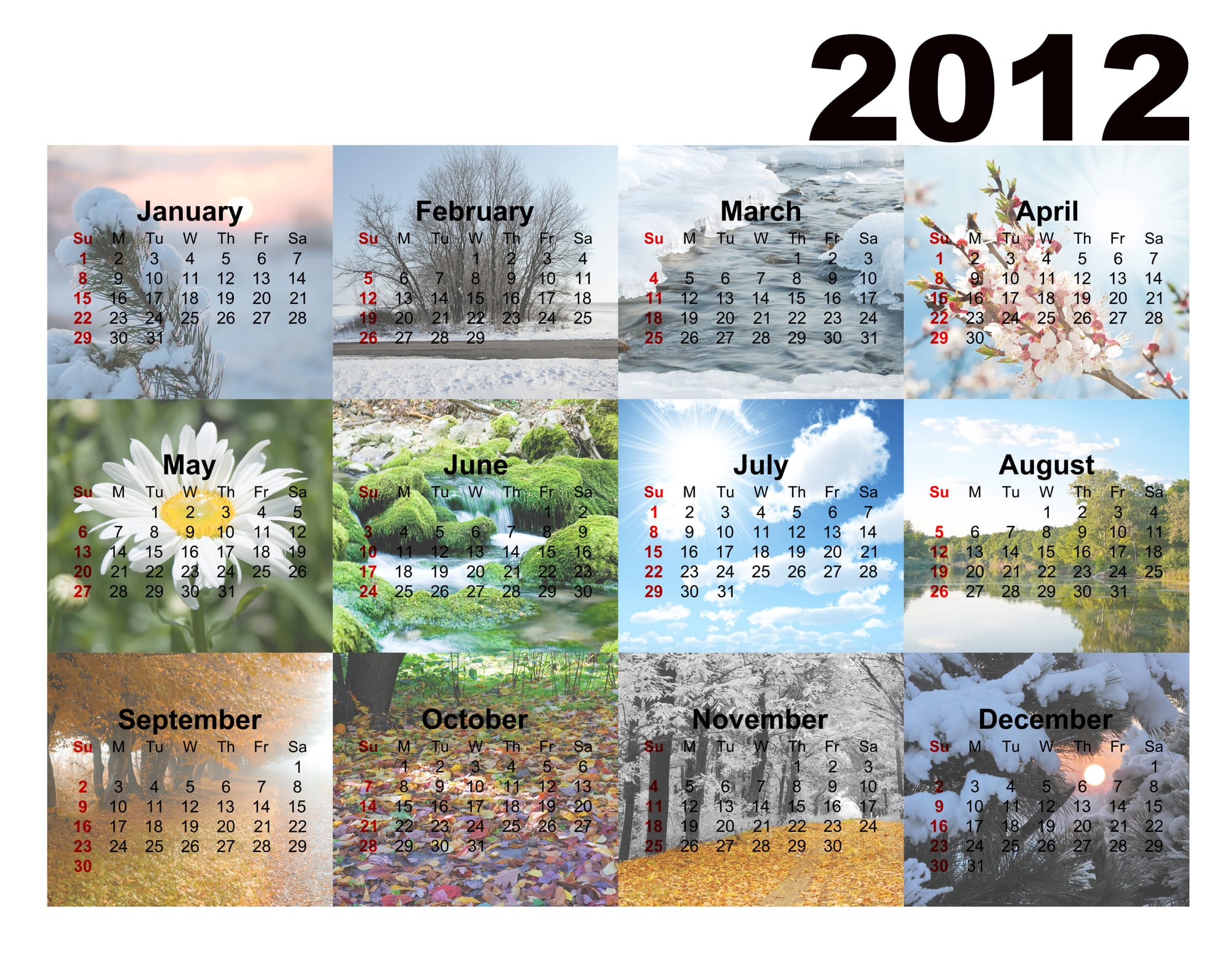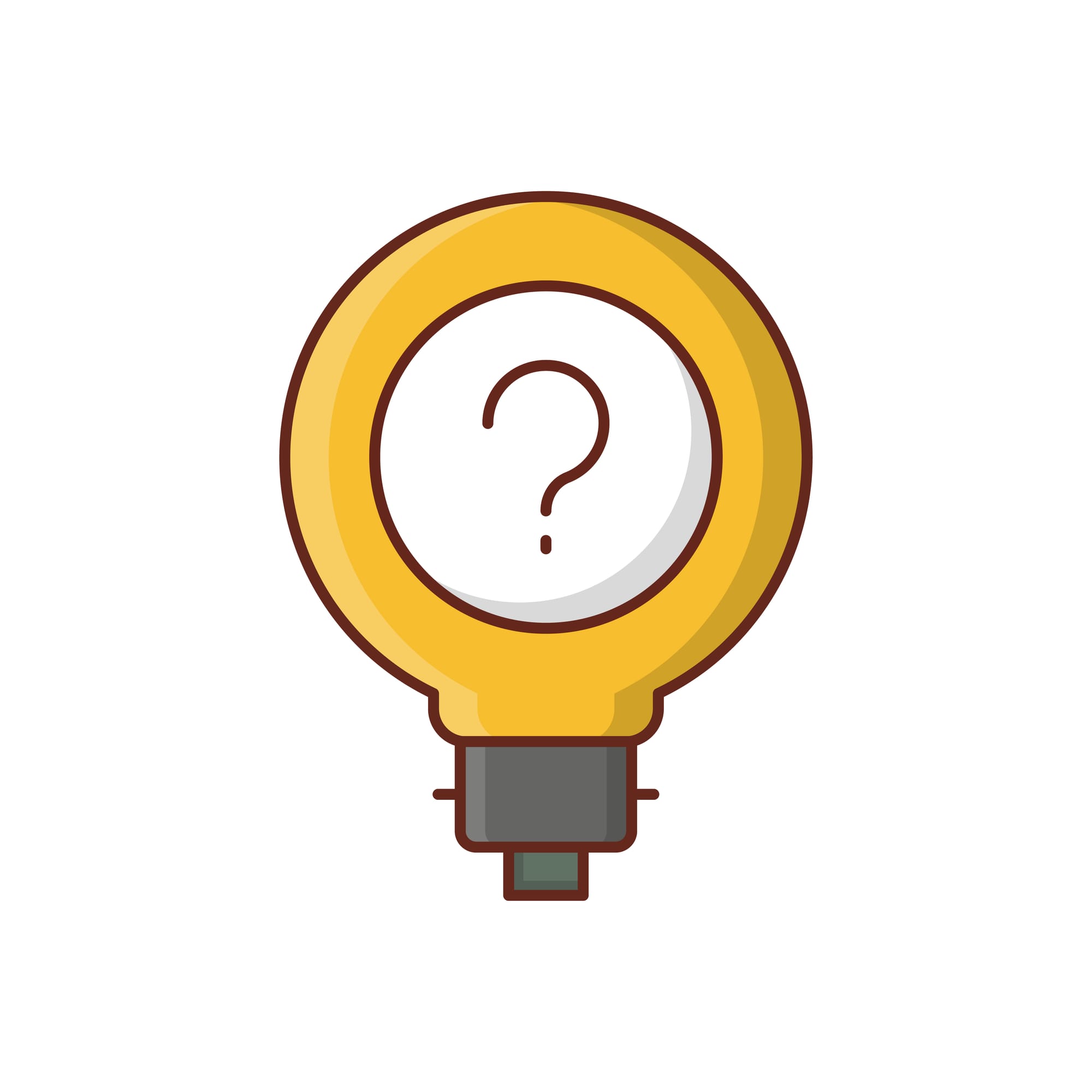Easy Spanish for Beginners: Months and Seasons
• public
Hola, Amigos! Ready to dive into the wonderful world of Spanish months and seasons? Trust me, this is going to be super useful. Imagine being able to chat about your summer plans or schedule a winter getaway, all in Spanish! It's not just about knowing the words; it's about opening doors to new conversations and understanding the rhythm of Spanish-speaking cultures. So, let's get started on this exciting journey together!
The Months of the Year (Los Meses del Año)
Alright, my friend, let's tackle those months! In Spanish, we say "los meses del año" for "the months of the year." I'm going to list them out for you, and then we'll break them down one by one. Don't worry if it seems like a lot at first – we'll take it step by step!
List of Months
- Enero (January)
- Febrero (February)
- Marzo (March)
- Abril (April)
- Mayo (May)
- Junio (June)
- Julio (July)
- Agosto (August)
- Septiembre (September)
- Octubre (October)
- Noviembre (November)
- Diciembre (December)
Pronunciation Tips
Now, let's get these rolling off your tongue! I'll break down each month's pronunciation for you:
- Enero (eh-NEH-roh)
- Febrero (feh-BREH-roh)
- Marzo (MAR-soh)
- Abril (ah-BREEL)
- Mayo (MY-oh)
- Junio (HOO-nyoh)
- Julio (HOO-lyoh)
- Agosto (ah-GOS-toh)
- Septiembre (sep-TYEM-breh)
- Octubre (ock-TOO-breh)
- Noviembre (no-VYEM-breh)
- Diciembre (dee-SYEM-breh)
Remember, in Spanish, we roll our 'r's a bit. Don't stress if you can't do it perfectly – it takes practice! The stress (emphasized syllable) is in CAPS to help you out.
Extra Practice
Now, let's put these months to work in some simple sentences. Try saying these out loud:
- "Mi cumpleaños es en marzo." (My birthday is in March.)
Pronunciation: Mee koom-pleh-AH-nyos es en MAR-soh. - "Vamos de vacaciones en julio." (We go on vacation in July.)
Pronunciation: BAH-mos deh bah-kah-SYOH-nes en HOO-lyoh. - "En diciembre celebramos la Navidad." (In December we celebrate Christmas.)
Pronunciation: En dee-SYEM-breh seh-leh-BRAH-mos lah nah-bee-DAHD.
Practice Exercise:
Try making your own sentences using different months. For example, tell me when your best friend's birthday is, or when you like to go to the beach!
Sample Dialogue:
María: ¿Cuándo es tu cumpleaños? (When is your birthday?)
Carlos: Mi cumpleaños es en octubre. ¿Y el tuyo? (My birthday is in October. And yours?)
María: ¡El mío es en abril! (Mine is in April!)
Isn't this fun? You're already starting to talk about dates in Spanish! In our next section, we'll explore the seasons. But before we move on, why don't you try writing a sentence using one of the months we've learned? I'm here to help if you need it!

The Seasons of the Year (Las Estaciones del Año)
Alright, bestie, ready to talk about the weather? Let's dive into "las estaciones del año" (the seasons of the year). There's something magical about how the world changes with each season, isn't there? In Spanish, we get to capture that magic with some beautiful words. Let's check them out!
List of Seasons
- Primavera (Spring)
- Verano (Summer)
- Otoño (Autumn/Fall)
- Invierno (Winter)
See? Just four words to describe the whole cycle of the year. Pretty neat, right?
Pronunciation Tips
Now, let's make sure you're saying these beautifully. I'll break it down for you:
- Primavera (pree-mah-VEH-rah)
- Verano (veh-RAH-noh)
- Otoño (oh-TOH-nyoh)
- Invierno (een-VYEHR-noh)
Remember, the 'ñ' in "otoño" is pronounced like the 'ny' in "canyon". And don't forget to roll that 'r' in "primavera" if you can. If not, don't sweat it – your Spanish friends will still understand you!
Extra Practice
Let's put these seasons to work in some simple sentences. Try saying these out loud:
- "Me gusta la primavera porque las flores florecen." (I like spring because the flowers bloom.)
Pronunciation: Meh GOOS-tah lah pree-mah-VEH-rah POHR-keh las FLOH-res floh-REH-sen. - "Hace mucho calor en el verano." (It's very hot in the summer.)
Pronunciation: AH-seh MOO-choh kah-LOR en el veh-RAH-noh. - "En otoño, las hojas de los árboles cambian de color." (In autumn, the leaves on the trees change color.)
Pronunciation: En oh-TOH-nyoh, las OH-has de los AR-boh-les KAM-byan de koh-LOR. - "Nieva mucho en invierno." (It snows a lot in winter.)
Pronunciation: NYEH-vah MOO-choh en een-VYEHR-noh.
Practice Exercise:
Can you tell me which season is your favorite and why? Use this structure: "Mi estación favorita es ___ porque ___." (My favorite season is ___ because ___.)
Sample Dialogue:
Sofía: ¿Cuál es tu estación favorita? (What's your favorite season?)
Lucas: Me encanta el verano porque puedo ir a la playa. ¿Y tú? (I love summer because I can go to the beach. And you?)
Sofía: Prefiero el otoño. Me gusta ver los colores de las hojas. (I prefer autumn. I like seeing the colors of the leaves.)
Isn't it amazing how just a few words can paint such vivid pictures? You're now ready to talk about all the seasons in Spanish! Before we move on to combining months and seasons, why don't you try creating a sentence about your favorite season or a season-specific activity you enjoy?
Absolutely! Let's move on to the next section where we'll combine our knowledge of months and seasons.

Combining Months and Seasons
Now that you've got the hang of months and seasons separately, let's put them together. This is where the magic happens – you'll be able to talk about the changing of the seasons and when they occur. Exciting, right?
Associating Months with Seasons
In Spanish-speaking countries, seasons are generally associated with these months:
- Primavera (Spring): marzo, abril, mayo
- Verano (Summer): junio, julio, agosto
- Otoño (Autumn): septiembre, octubre, noviembre
- Invierno (Winter): diciembre, enero, febrero
Remember, though, that seasons can vary depending on where you are in the world. In the Southern Hemisphere, for instance, the seasons are flipped!
Extra Practice
Let's practice using months and seasons together. Try these sentences:
- "En marzo empieza la primavera." (Spring starts in March.)
Pronunciation: En MAR-soh em-pee-EH-sah lah pree-mah-VEH-rah. - "Diciembre es en invierno." (December is in winter.)
Pronunciation: Dee-SYEM-breh es en een-VYEHR-noh. - "El verano termina en agosto." (Summer ends in August.)
Pronunciation: El veh-RAH-noh ter-MEE-nah en ah-GOS-toh. - "Octubre es un mes de otoño." (October is an autumn month.)
Pronunciation: Ock-TOO-breh es un mes de oh-TOH-nyoh.
Practice Exercise:
Try creating sentences that combine a month with its corresponding season. For example: "Julio es un mes caluroso porque es verano." (July is a hot month because it's summer.)
Sample Dialogue:
Ana: ¿Cuándo es tu época favorita del año? (When is your favorite time of the year?)
Miguel: Me encanta mayo, cuando la primavera está en pleno apogeo. ¿Y tú? (I love May, when spring is in full bloom. And you?)
Ana: Prefiero septiembre, al comienzo del otoño. El clima es perfecto. (I prefer September, at the beginning of autumn. The weather is perfect.)
Isn't it cool how you can now talk about the whole year in Spanish? You're combining time and nature in your sentences – that's some advanced stuff, my friend!
Before we move on to some more practice exercises, why don't you try telling me about your favorite time of the year, using both a month and a season?

Practice Exercises
Alright, amigo! It's time to put all that new knowledge to work. Don't worry if you don't get everything perfect right away – practice makes perfect, and I'm here to help you every step of the way. Ready? Let's go!
Fill-in-the-Blank Sentences
Complete these sentences with the appropriate month or season:
- "Mi cumpleaños es en ________." (My birthday is in ________.)
- "________ es la estación más fría." (________ is the coldest season.)
- "En ________ celebramos el Año Nuevo." (We celebrate New Year's in ________.)
- "Las hojas caen de los árboles en ________." (Leaves fall from trees in ________.)
- "________ es el primer mes de la primavera." (________ is the first month of spring.)
Matching Months with Seasons
Match each month to its corresponding season:
- Abril a. Verano
- Noviembre b. Otoño
- Julio c. Invierno
- Enero d. Primavera

More Dialogue Practice
Let's practice a short dialogue between two friends planning a trip. Try reading both parts aloud, focusing on your pronunciation:
María: Hola Juan, ¿cuándo quieres ir de vacaciones? (Hi Juan, when do you want to go on vacation?)
Juan: Estaba pensando en julio o agosto. Me encanta el verano. (I was thinking about July or August. I love summer.)
María: ¿No prefieres la primavera? Abril es un mes hermoso para viajar. (Don't you prefer spring? April is a beautiful month for traveling.)
Juan: Es verdad, pero en verano hace más calor y los días son más largos. (That's true, but in summer it's hotter and the days are longer.)
María: Bueno, entonces ¿qué tal si vamos en agosto? (Well, how about if we go in August then?)
Juan: ¡Perfecto! Empecemos a planear. (Perfect! Let's start planning.)
Now, try creating your own short dialogue about planning an activity in a specific month or season. You can use this as a starting point:
Person A: ¿Cuándo quieres ________? (When do you want to ________?)
Person B: Prefiero en ________. Es mi ________ favorito/a. (I prefer in ________. It's my favorite ________.)
Remember, the key to learning is practice and not being afraid to make mistakes. You're doing great!
Conclusion
¡Felicidades, mi amigo! (Congratulations, my friend!) You've just taken a big step in your Spanish language journey. We've covered a lot of ground - from the sunny days of "julio" to the crisp air of "otoño." Remember, learning a language is like watching the seasons change - it happens gradually, but before you know it, you're in a whole new world!
Don't worry if you don't remember everything right away. Like the seasons, your knowledge will cycle and grow. Keep practicing, use these words in your daily life, and soon you'll be chatting about months and seasons like a native speaker.
Why not try keeping a small diary in Spanish, noting the date and describing the weather or season? It's a great way to practice and see your progress over time. And remember, every day you practice is a step closer to fluency. ¡Tú puedes! (You can do it!)

FAQ (Preguntas Frecuentes)
- Q: Do Spanish-speaking countries use the same names for months?
A: Yes, the names of the months are the same across all Spanish-speaking countries. However, remember that in some countries, especially in the Southern Hemisphere, the seasons occur at different times of the year. - Q: Are there any special traditions or sayings related to months or seasons in Spanish?
A: Absolutely! For example, there's a saying "Abril, aguas mil" (April, a thousand waters), referring to April showers. Many countries also have special celebrations tied to seasons, like "La Primavera" festival in Spain. - Q: Do I need to capitalize the names of months and seasons in Spanish?
A: Unlike in English, months and seasons are not capitalized in Spanish unless they're at the beginning of a sentence. - Q: How can I practice pronunciation if I don't have a Spanish-speaking friend?
A: There are many great resources online! You can use language learning apps with audio features, watch Spanish YouTube videos, or even use text-to-speech tools to hear the words pronounced. - Q: I'm struggling to roll my 'r's. Will this affect my ability to communicate?
A: Don't worry! While rolling 'r's is part of Spanish pronunciation, many learners find it challenging. Native speakers will still understand you. Keep practicing, and it will come with time.
Remember, learning a language is a journey, not a destination. Enjoy the process, celebrate your progress, and don't be afraid to make mistakes. That's how we learn! ¡Buena suerte! (Good luck!)
Word Bank (Banco de Palabras)
- año - year
- cumpleaños - birthday
- vacaciones - vacation
- flores - flowers
- florecer - to bloom
- calor - heat
- frío - cold
- hojas - leaves
- árboles - trees
- cambiar - to change
- color - color
- nevar - to snow
- playa - beach
- favorito/a - favorite
- empezar - to start
- terminar - to end
- época - time, period
- clima - weather
- perfecto - perfect
- celebrar - to celebrate
- Año Nuevo - New Year
- caer - to fall
- hermoso - beautiful
- viajar - to travel
- días - days
- largo - long
- planear - to plan
- felicidades - congratulations
- amigo - friend
- puedes - you can
- preguntas frecuentes - frequently asked questions
- aguas - waters
- mil - thousand
- primavera - spring (repeated for context)
- verano - summer (repeated for context)
- otoño - autumn/fall (repeated for context)
- invierno - winter (repeated for context)
- pronunciación - pronunciation
- aprender - to learn
- práctica - practice
This word bank includes nouns, adjectives, and verbs that were used in context throughout the lesson.
